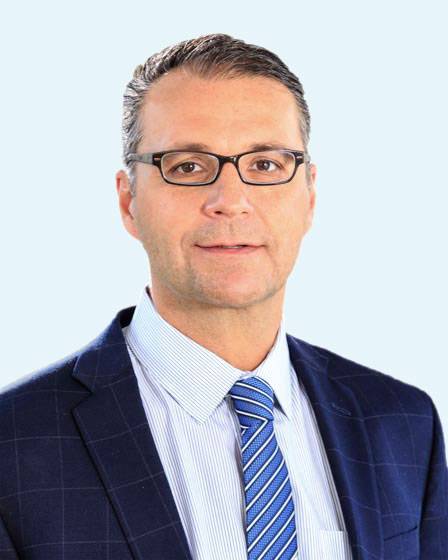
Thomas Bernik, MD, is chief of vascular surgery at Englewood Health
What exactly is TCAR?
Dr. Bernik: TCAR is a minimally invasive procedure in which a small cut is made just above the collar bone to directly access the blocked carotid artery. This cut is much smaller than those made in other common procedures to remove carotid artery blockages or plaque. During TCAR, a tube inserted into the artery temporarily reverses the blood flow. This causes any plaque that may come off during the procedure to flow away from the brain, preventing possible stroke. The blood is then filtered outside the body and returned to the body via a tube inserted into the upper leg. Finally, a stent is placed inside the artery to stabilize the plaque, minimizing the risk of future stroke.Who is a good candidate for TCAR?
Dr. Bernik: The procedure is particularly well suited for patients who are at high risk of complications from conventional carotid surgery because of age, anatomy, or other medical conditions. This safer approach can lead to better outcomes and faster recovery for such patients.What are some of the other vascular conditions you treat at Englewood Health?
Dr. Bernik: Vascular surgery at Englewood Health encompasses two categories: arterial disease and venous disease. The most common arterial disease we treat is peripheral vascular disease, which affects the legs and can lead to pain and an inability to walk or stand, and if left untreated, could lead to gangrene and limb loss. Treatment for the legs can be a stent, laser therapy, or atherectomy, which is the insertion of a Roto-Rooter-type device. We can also perform a bypass, similar to that done in the heart. We also treat abdominal and thoracic aneurysms as well as thoracic dissections. Aneurysms occur when the blood vessel wall becomes weak and bulges out. An aneurysm can be fatal, especially if it bursts. The venous conditions we treat include deep vein thrombosis, varicose veins, and spider veins anywhere in the legs and body. We also specialize in the treatment of pulmonary embolism (PE). PE usually develops from a clot in the leg (deep vein thrombosis). The clot dislodges from the venous wall and travels to the lung, where it can prevent oxygen from reaching the lungs and heart. If a clot is large enough, it can be life threatening. Posted April 2019
Thomas Bernik, MD, is chief of vascular surgery at Englewood Health
